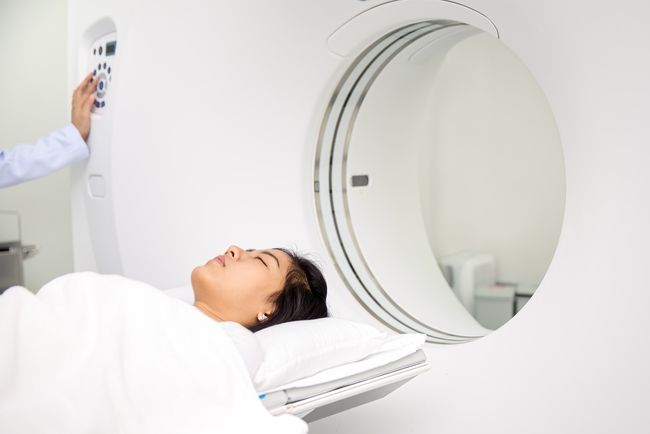Status epilepticus is a state of seizures that lasts a long time and can cause the sufferer to experience a loss of consciousness. This condition is classified as serious and requires emergency medical treatment because it can cause brain damage and be fatal.
Status epilepticus can be experienced by anyone who is more prone to having seizures, for example people with epilepsy or other diseases, such as brain infections and head trauma. In addition, cases of status epilepticus are also more common in people aged 50 years and over or in children under 15 years of age.

Various Causes of Status Epilepticus
Status epilepticus can occur in diseases where the main symptom is seizures, such as febrile seizures in children or epilepsy in adults. Status epilepticus in epilepsy usually occurs due to changes in the dose or type of anticonvulsant medication taken.
In addition, there are a number of other conditions that can also cause status epilepticus. Some of them are:
- Encephalitis
- Head trauma
- Brain tumor
- Blood electrolyte disorders
- stroke
- Alcohol addiction
- Drug abuse
- HIV/AIDS
Recognize the Symptoms of Status Epilepticus
Status epilepticus is characterized by seizures that last for more than 5 minutes or are repeated for up to 30 minutes. In addition, patients generally also experience a decrease in consciousness between seizures or after seizures.
Seizures can occur in various forms. There are generalized seizure symptoms and some are not common, depending on which part of the brain is affected. Common seizure symptoms in status epilepticus are:
- All muscles of the hands and feet stiffen, then followed by a stomping motion
- Foaming mouth
- Bitten tongue
- bedwetting
- Blue lips and fingers or cyanosis, which is caused by lack of oxygen if the seizure lasts for a long time
Meanwhile, seizure symptoms that are not common are usually more difficult to identify. Symptoms that may appear may include:
- Looks confused or daydreaming
- Performs repetitive odd movements, such as pedaling a bicycle or drying clothes
- Appears conscious but doesn't respond when called
- Scream, cry or laugh
Seizure symptoms can be preceded by an aura, which is a certain feeling or movement, such as tingling, sudden head movements, or seeing flashes of light. Aura is usually a sign for sufferers that a seizure will occur.
Management of Status Epilepticus
Seizures must be treated immediately, especially if they develop into status epilepticus. The following are steps for handling seizures, both before and after in the hospital:
First aid for status epilepticus
First aid that can be done when someone has a seizure is:
- Move the patient to a safe position
- Protects his head from impact
- Loosen clothes that can interfere with breathing, such as belts and collar buttons
- Remove sticking objects, such as watches or glasses, to prevent injury.
If the seizure persists after 5 minutes, call an ambulance immediately so that the patient gets emergency medical care.
Management of status epilepticus in hospital
Arriving at the hospital, the doctor will carry out treatment to stabilize the patient's condition first. The following are possible actions:
- Administration of high levels of oxygen or insertion of endotracheal intubation
- Infusion to insert anti-seizure drugs, such as diazepam or phenytoin
- Check blood pressure, blood oxygen levels, and blood sugar quickly
After the seizures have stopped and the patient is stable, the doctor will conduct further examinations to find out the cause of the seizures and whether there are complications due to seizures. Furthermore, therapy will be tailored to the problems found.
Status epilepticus is a critical condition with a high potential to cause brain damage, even death. Therefore, this condition must be treated immediately. The sooner treatment, the less brain damage is possible.
If you have epilepsy, it is recommended that you take anti-seizure drugs regularly as recommended by your doctor to prevent a relapse. In addition, it's a good idea to discuss with your doctor about preparing for seizures or status epilepticus which can occur at any time.









